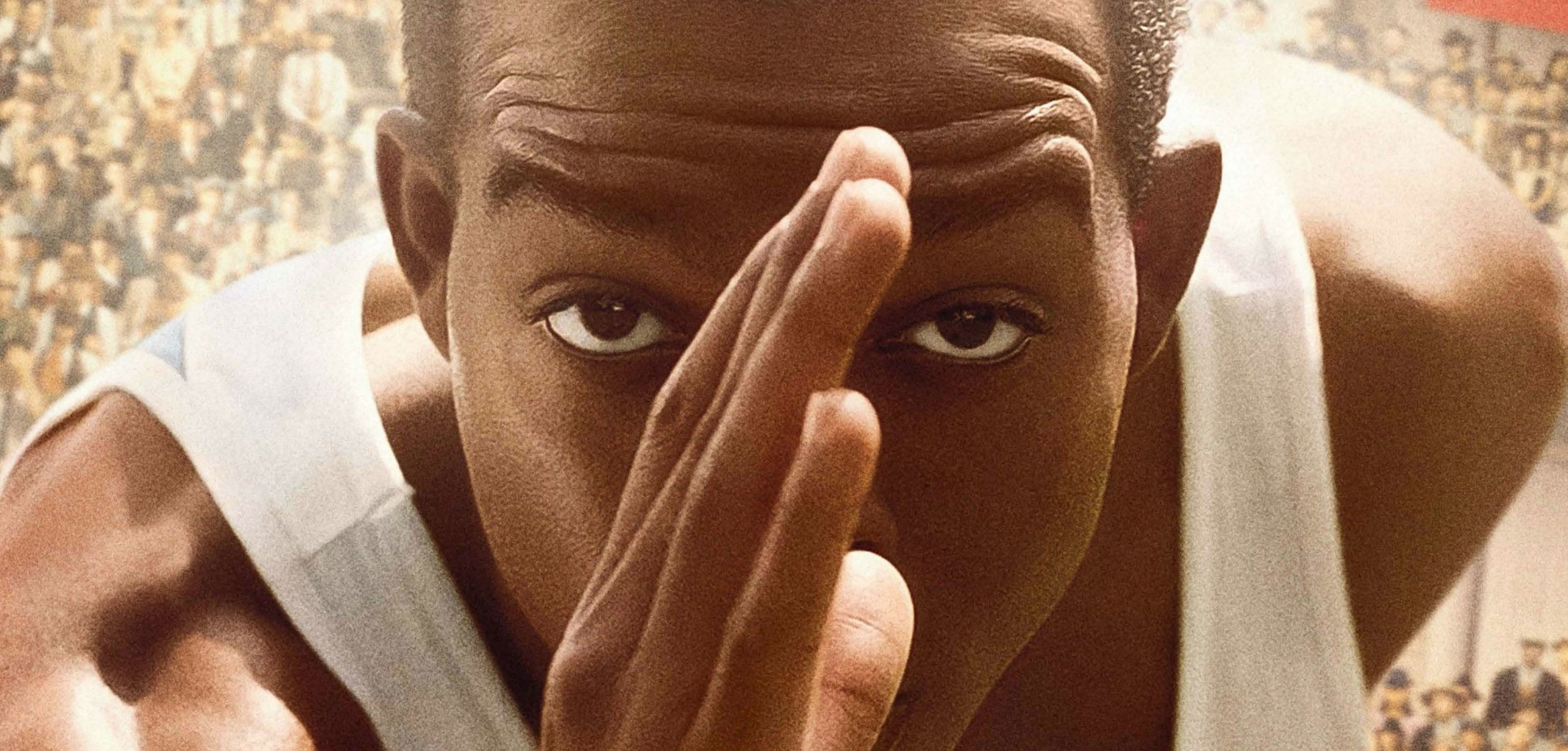

RACE review: Jesse Owens biopic trips on its own Olympic feat
With the lack of racial diversity at the Oscars and in Hollywood in general, much rides on every film featuring leads of color. Does this biopic of Jesse Owens, 4 time Gold medalist in the 1936 Olympics, deserve an audience for its film craft and storytelling? Does it capture the power of this historic man’s life and experience?
It is certain that Jesse Owens was a man of incredible courage. During the build-up of Hitler’s power in Germany, when Aryan supremacy was becoming the law of the land, and jews, people of color, and a host of other minorities were being demonized, Jesse Owens attended and triumphed at the 1936 Berlin Olympics. It is an essential story in black history, an inspiration to all, especially people of color and would-be athletes. RACE follows Owens from his start at college through the Olympics, and ends shortly after the games.
It stars Stephen James, who should have blown the roof off his career with his memorable brief turn as John Lewis in SELMA, and the strong, self possessed presence he brings as Owens proves the best aspect of the film.
Jason Sudeikis as hard drinking yet committed coach Larry Snyder, Jeremy Irons (as Avery Brundage), William Hurt (Jeremiah Mahoney) and Carice van Houten (Leni Reifenstahl) all acquit themselves admirably. However, those who know the life and career of Nazi propaganda director Reifenstahl will find her role in RACE off-putting.
Here, where they have her filming her famous documentary OLYMPIA, she appears as supportive of Jesse Owens and a champion for his acceptance. In real life, the director, by nearly all accounts save her own, was fully sympathetic to the Nazi cause, and a close friend to Hitler. Any inclusion of Owens’ winning races in her documentary would have been purely for the sake of her film.
I wish this movie with a black lead actor released during black history month was less uneven. RACE vacillates between authentically capturing the optimism of a biography like SELMA, and devolving into the sentimentality of a middling Hallmark Hall of Fame flick. RACE finds most of its trouble in its pacing, and the disjointedness of a story that can’t decide if it’s a sports film or a biopic. It repeatedly splits focus in ways that distract and lose forward movement, spending too much time on some scenes and not enough on others in the 2 hour and 14 minute running time. Owens’ struggles as a black man becoming famous in the 1930s are touched upon, but not covered in depth. The audience is exposed to them in 5 minute increments. It mutes the intensity of RACE, for example, to only see one scene with Owens and his wife, experiencing continued racism in the US after the Olympics.
The story itself so deserves to be told and seen, that transgressions by director Stephen Hopkins and writers Anna Waterhouse and Joe Shrapnel can nearly be forgiven. It also gains points for being a well-acted and well-shot film. The upcoming changes at The Academy should finally shine a light on deserving movies created by, and with women and people of color. Acceptably good but not great, It’s hoped RACE is at least one step closer for the many under appreciated talents towards consistent wins at the box office and awards ceremonies.
C+




